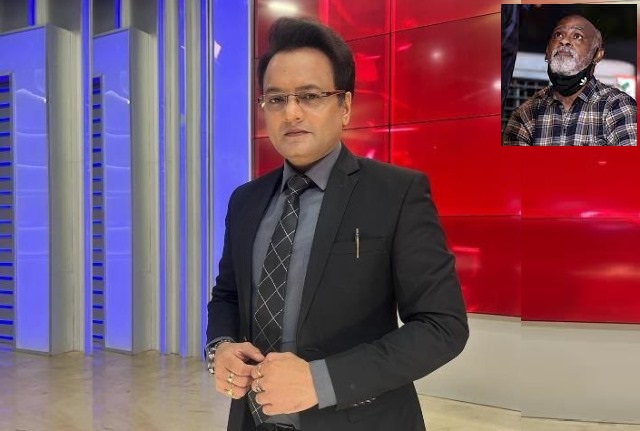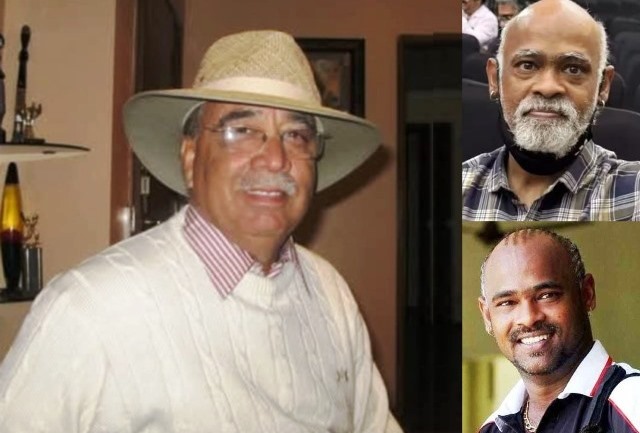Prof Rashid Hashmi, a senior journalist and anchor, says while talent can open new doors, it is discipline that keeps them open. His views:
Seeing Vinod Kambli at a recent Mumbai function—looking disheveled and struggling to speak—was heart-breaking for anyone who has followed his journey. As a cricket lover, it’s impossible not to feel the weight of his story, especially when you think about his childhood friend, Sachin Tendulkar. Sachin’s disciplined career gifted us endless centuries and unforgettable moments, while Kambli’s untamed brilliance flickered out too soon. Their contrasting paths aren’t just stories about cricket; they’re life lessons about discipline, success, and resilience.
Discipline is everything in sports. Talent might grab headlines, but discipline builds legacies. Sachin Tendulkar’s career proves this. He didn’t just rely on his extraordinary talent; he backed it up with years of hard work, unshakeable focus, and humility. Under the crushing weight of a billion expectations, Sachin stayed grounded, letting his bat do the talking.
Kambli, on the other hand, was pure magic when he was at his best. His audacious stroke play and natural flair were unmatched. But he lacked the discipline that could have turned that brilliance into something lasting. His career, so full of promise, was overshadowed by distractions and personal struggles. It’s a painful reminder that while talent can open doors, discipline is what keeps them open.
Success can be a strange and heavy thing. For some, it fuels more achievements; for others, it’s a weight they can’t bear. Kambli’s struggles with alcohol and his inability to handle fame reveal the darker side of success. It’s not just about reaching the top but staying there, and that requires a different kind of strength—emotional resilience, a solid support system, and sometimes, just someone to remind you of your purpose.
Kambli’s story isn’t just a cautionary tale. It’s also a call to understand the human cost of greatness. He had the talent to stand shoulder-to-shoulder with the best, but success came too fast, and the spotlight was unforgiving.
ALSO READ: ‘Cricket Stars Must Leart to Digest Success, Glamour’
The Board of Control for Cricket in India (BCCI) could play a huge role in preventing stories like Kambli’s from becoming all too common. Beyond just nurturing players on the field, they need to focus on their well-being off it. Programs for mental health, financial management, and life skills could make a world of difference. Cricketers could benefit from regular counseling and mentorship—someone to guide them through the highs and lows of their careers.
Instead of seeing cases like Kambli’s as embarrassing footnotes, the BCCI could turn them into opportunities to create a stronger, more resilient culture within Indian cricket.
And yet, despite everything, there’s something profoundly moving about Kambli’s story. In a recent video, he stood next to Sachin, laughing like they were back on the maidan at Shivaji Park. Time seemed to have softened the edges of their past. Sachin’s warmth toward Kambli, his refusal to let history turn their friendship into rivalry, is a testament to the depth of their bond. And Kambli, with his easy smile, seemed to have found some peace with his journey.
Their stories couldn’t be more different, but they’re equally important. Sachin reminds us of what discipline and perseverance can achieve, while Kambli’s tale is a poignant reminder of the fragility of success and the cost of untamed genius.
Cricket, like life, doesn’t always play fair. But for a moment, under the watchful eyes of Ramakant Achrekar, two boys dared to dream. Those dreams, even if realized in different ways, will always belong to both of them. As fans, we should cherish their stories for what they teach us—about talent, discipline, and the enduring magic of friendship.
(The narrator is a Professor of Mass Communication with Sharda University)
As told to Deepti Sharma

